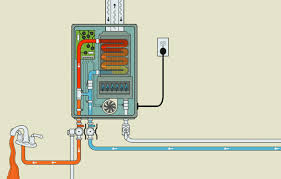


Spring has officially arrived in Cumberland County, and with it comes those familiar April showers. While rain is great for our gardens, it’s not so great for your home’s comfort. All that moisture in the air can lead to excess humidity inside—which means mold, musty odors, and reduced air quality if you’re not prepared.
At Crossville Heating and Cooling, Inc., we know how quickly spring weather can shift in Tennessee. That’s why we’re sharing local tips to help you manage indoor humidity and keep your HVAC system running strong.
When humidity levels rise, your air conditioner works harder to keep you cool—and without proper maintenance, it may struggle to keep up. Older homes in areas like Pleasant Hill or Lake Tansi are especially vulnerable to spring moisture due to aging plumbing, poor drainage, and changing temps.
Too much humidity indoors can cause:
Your HVAC system plays a big role in regulating moisture, but it needs to be clean, tuned up, and operating efficiently. Here’s what we recommend for homeowners in Crossville, Fairfield Glade, and the surrounding communities:
Spring showers can reveal hidden problems, especially if you haven’t checked your plumbing since winter. Crossville homes built decades ago may have older pipes prone to leaks or slow drains. Heavy rainfall also stresses sump pumps and yard drainage systems.
To stay ahead of water damage:

Common causes include refrigerant leaks or low refrigerant levels, frozen or dirty coils, airflow issues, drainage problems, electrical faults, compressor failure, and fan motor issues.
Homeowners should set up HVAC maintenance twice a year. It's best to do this in the spring and fall. This keeps the system running well and saves energy.
A plumbing inspection checks a home's plumbing system. This includes pipes inside and outside, like hose bibs, sinks, and toilets. It's a detailed check that goes beyond a simple home inspection.
An AC system works by moving refrigerant between indoor and outdoor units. It absorbs heat from inside and sends it outside. Knowing how the refrigeration cycle and heat transfer work helps fix cooling problems.
HVAC maintenance is a service that keeps your heating, ventilation, and air conditioning systems in top shape. It includes checking and maintaining all parts of the HVAC system. This keeps your system efficient.
Getting a plumbing inspection helps spot problems early. It shows the plumbing's condition to potential buyers. And it stops small issues from becoming big, costly ones.
Signs include the AC running all the time but not cooling the house, warm air coming from vents, and the outdoor unit feeling cool. You might also see frost or ice on the coils.
During maintenance, technicians check and service key parts like air filters, coils, refrigerant levels, and electrical connections. This ensures everything works right.
There are two main types of plumbing inspections. A visual inspection looks for leaks or problems with water and sewer fittings. A camera inspection uses high-resolution cameras to see inside pipes and the sewer line.
First, make sure the thermostat is set to "cool" and the temperature is lower than inside. Check the circuit breakers for both units are on and haven't tripped.
How often you need HVAC maintenance depends on the system's age and the local climate. Newer systems usually need maintenance once a year. Older systems might need it more often.
A plumbing inspection checks sinks, toilets, and pipes. It looks at outdoor faucets and the water heater too. Sometimes, it includes a camera inspection of the sewer line.
Blocked air filters or vents can stop proper airflow. This stops the heat transfer and makes the cold air go outside instead of in.
Schedule HVAC maintenance before you really need it, which is usually in spring and fall. This helps the system work better when you need it most.
A plumbing inspection usually costs about $200. Visual inspections are cheaper, but camera inspections can be up to $500. You might also need to pay for repairs if problems are found.
Without enough refrigerant, the AC can't cool the air well. A leak or low levels can freeze the coils and send cold air outside.
Regular maintenance makes your HVAC system more reliable. It helps spot problems early and works more efficiently. This can save you money on energy bills.
Experts suggest getting a plumbing inspection every two years. If your home is over 40 years old, consider an annual check to keep the plumbing in good shape.
Frozen coils block airflow and stop heat transfer, sending cold air outside. Dirty coils also stop the heat from being released, making the AC struggle to cool the air.
Clean around the outdoor unit and check the coils and cabinet for damage before the technician comes. Also, inspect the ductwork for leaks.
There's no special prep needed, but knowing about any issues like slow drains or leaks is helpful. Tell the inspector about these problems before the inspection.
A blocked condensate drain can make the system freeze or shut down. This sends cold air outside instead of inside.
Choose HVAC companies with certified technicians, like those with NATE certification. They should also have a good history of quality service and happy customers.
Regular inspections catch small problems early, avoiding big, costly repairs. They prevent water damage and ensure your plumbing works well. They can also make your home more appealing to buyers.






.jpg)





